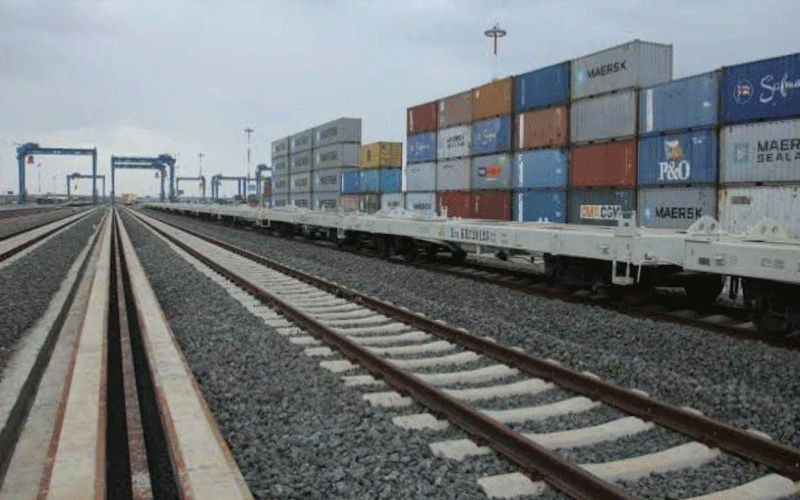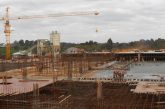
Private sector players and the Shippers Council of East Africa (SCEA) want the Naivasha Inland Container Depot managed as a commercial enterprise to eradicate bottlenecks associated with government red tape.
This is according to study commissioned by the Kenya Railways Corporation (KRC) and jointly conducted by the Kenya Private Sector Alliance (Kepsa) and SCEA, which represents regional logistics firms and international traders, which notes that clearance of cargo will be much faster if the facility is run like a private entity.
The study follows complaints over costly and mandatory shipment of on-transit cargo from Mombasa to Naivasha through the standard gauge railway. SCEA’s chief executive Gilbert Langat explained that the complaints are due to illegal commissioning which negatively impacts existing commercial contracts between shipping lines, cargo owners and their logistic partners.
“We are happy with the infrastructure the government is providing but we must engage private sector on its use. People have existing contracts so there is no way the government can force private sector to use specific mode of transport,” said Mr Langat.
The study also suggests inclusion of private management companies to be activated immediately after the public-private partnership processes currently underway are completed, the report said.
“We are happy with the infrastructure the government is providing but we must engage private sector on its use. People have existing contracts so there is no way the government can force private sector to use specific mode of transport,” said Mr Langat.
Private management companies
The Kenya International Freight and Warehousing Association supported the proposal saying high freight costs made it costly to use the Naivasha service for cargo destined to Kampala as it costs Sh303,112 ($2,850) compared to the direct Mombasa-Kampala haulage by truck whose charges currently stand at Sh244,617 ($2,300).
The just released Kepsa-SCEA study report called for deliberate government-private sector talks saying this will address operational challenges that have made Naivasha ICD unpopular with users. The private sector had decried delays experienced in clearance of goods citing operational inefficiencies and cost-effectiveness of the facility.
Naivasha ICD remains inaccessible by road, a situation that has forced truck firms to increase charges. This challenge will however soon be addressed once the planned Sh13 billion dualling project for the flood-prone 41km Maai Mahiu-Suswa road section is implemented together with an interchange to the Naivasha ICD.
The Naivasha facility opened in 2019 was aimed at reducing transport costs, guaranteeing minimum non-tariff barriers (NTBs), facilitating fast and predictable cargo evacuation from origin to destination while reducing emission of harmful greenhouse gases into the atmosphere by long distance trucks using Kenya’s roads.
The report now undergoing validation stages has also proposed that the Kenya Ports Authority (KPA) and KRC considers implementation of First in First out (FIFO) framework to ensure timely delivery of cargo to Naivasha ICD from Mombasa.
Clearance at the Naivasha ICD, says the report should be streamlined with penalties and timelines for clearances streamlined. Currently, users enjoy a 30-day free period for cargo clearance at the Naivasha ICD by KPA while shipping lines offer 28 days. But the Kenya Revenue Authority (KRA) charges customs warehouse rent for any cargo that remains unclaimed beyond the 21 days as provided by the East African Community Customs Management Act (EACCMA ACT,2012).
The variance, the report says, creates inconsistency on incentives making it almost impractical for cargo owners to benefit.
“To enhance the operational efficiency of the facility, the report recommends full installation of support infrastructure and systems, additional control gates for smooth movement of trucks, fast-tracking system configuration as well as weighbridge activation and construction of verification area to support processing of local cargo. A medical facility could be constructed and Covid-19 isolation facility opened as well as provision of a perishable goods facility,” noted the report.
Currently, long distance truck drivers must seek Covid-19 certificates from other facilities in Nairobi and Mombasa before being allowed to enter Naivasha ICD. Kepsa-SCEa added that KPA should develop and implement Standard Operating Procedures (SOPs) for the smooth running of the facility as well as other ICDs in the country. The private sector players should also be included in promoting usage of the facility instead of the forceful arm-twisting currently being used by the government.





